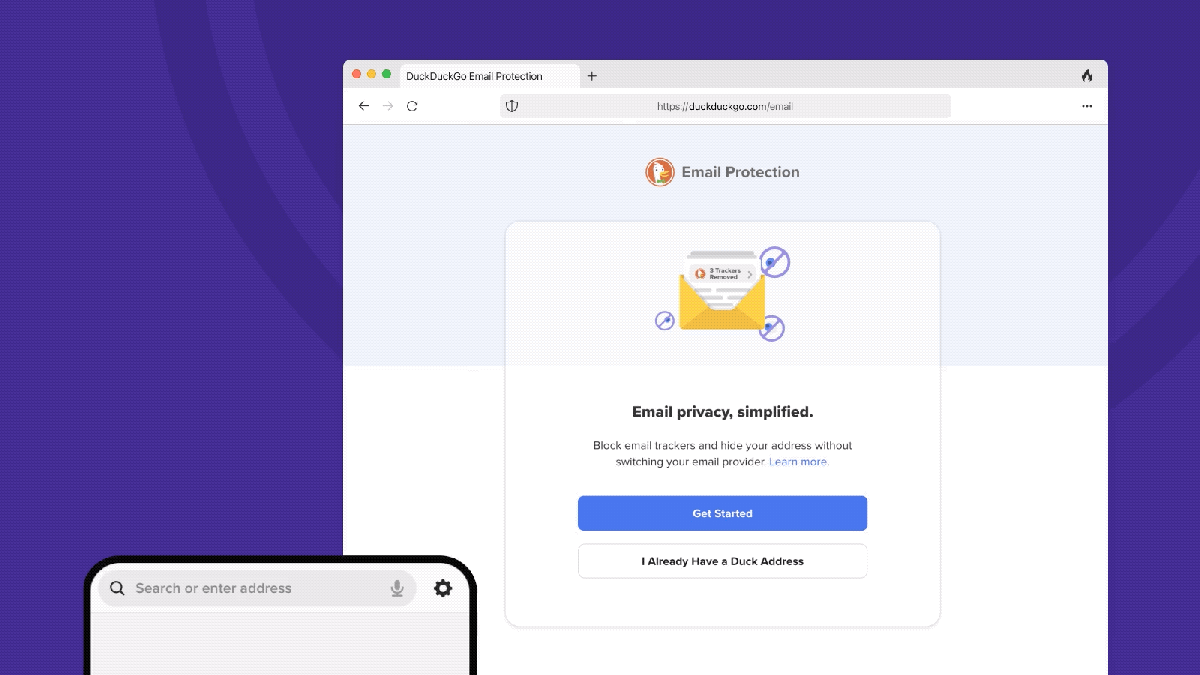Web users are becoming more and more aware of their privacy—or their lack thereof—on the modern internet. Search engine DuckDuckGo has always catered to those concerns, and doubled down on them with a dedicated Webkit-based browser for the Mac earlier this year. Now the company is completing its hat trick with a privacy-focused email service. Naturally, new accounts get the @duck.com domain.
The DuckDuckGo email service has been in closed beta, but the company just removed the waitlist and made the service open for all. The service is called Email Protection, though in practice it works more or less like any web email system. DuckDuckGo provides users with a forwarding service—a “PCWorldMichael@duck.com” address, for example. Emails sent through this alias will have embedded tracking cookies and other methods of observation removed, and users will get reports on which companies have attempted to track the message.
On top of this proxy service, users can create semi-randomized addresses, like “avtzqdr@duck.com,” that will send messages to their primary @duck.com account. These “private addresses” get the same anti-tracking services, but obfuscate your real address, and can be deleted by the user at any time. They’re sort of like a more advanced, useful version of disposable addresses like 10MinuteMail.com.

DuckDuckGo
The Email Protection system is available using the DuckDuckGo browser extension on Windows, the DuckDuckGo dedicated browser on Mac, or the DuckDuckGo app on iOS and Android.




